Buddhist Quotes Designed to Make Us All Think
. . . and Rethink!
Buddha was a prolific teacher, giving a total of 84,000 teachings during his life. By practicing his teachings, we can quickly overcome all negative states of mind, such as anger, anxiety, depression, and hopelessness, and reorient our lives to make everyday a meaningful stepping stone to the actualization of our full potential, enlightenment. When we reach this state, we will never suffer again and we will have an extraordinary capacity to help all beings achieve the same.
Enjoy these Buddhist quotes about meditation, the mind, and the real source of happiness, inner peace. This compilation includes some of our most loved quotes taken from our Instagram and Facebook for daily inspiration.
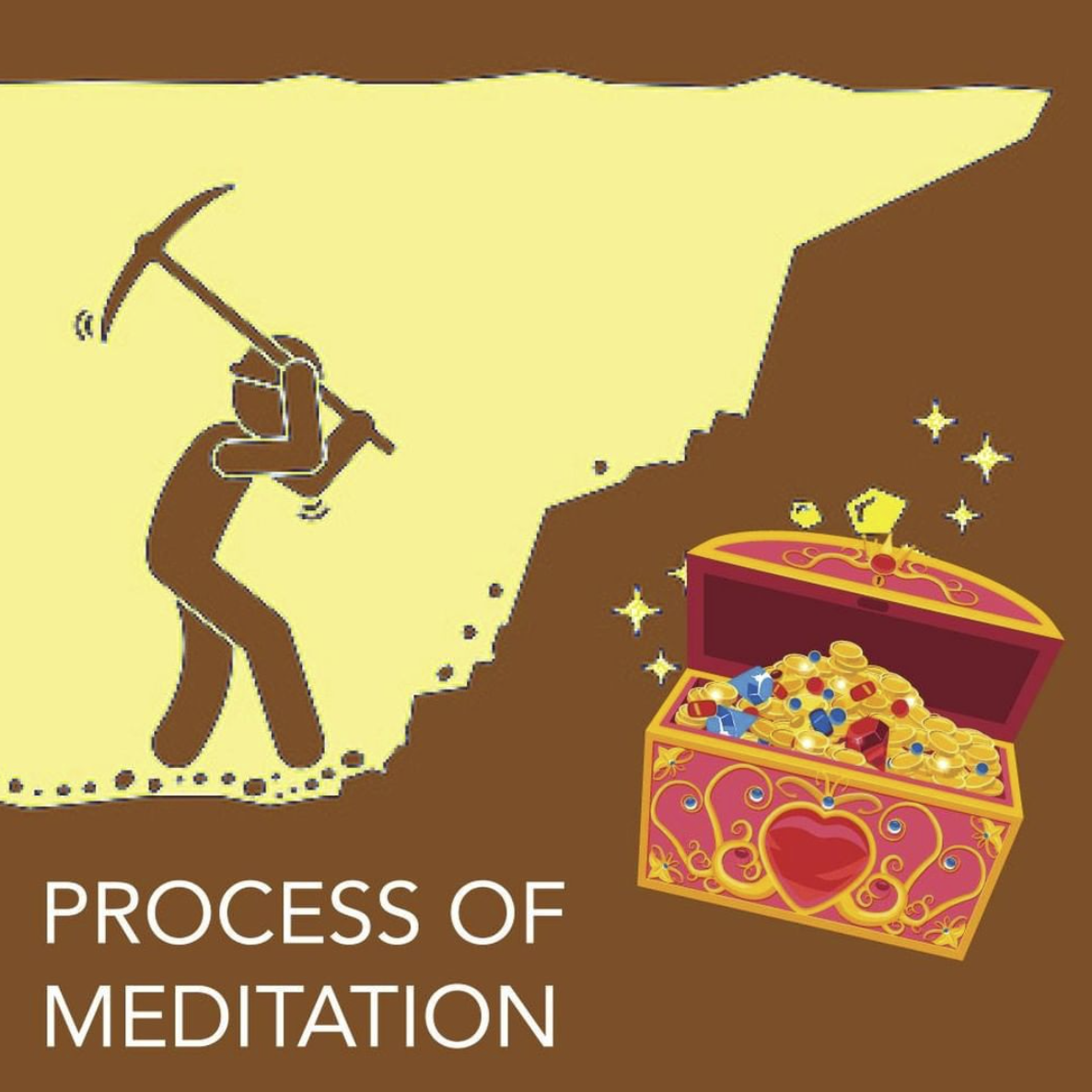
The extraordinary treasure of enlightenment is within our minds - a state of limitless joy, freedom, love, compassion, and wisdom. Meditation is the method taught by Buddha to discover this priceless treasure.
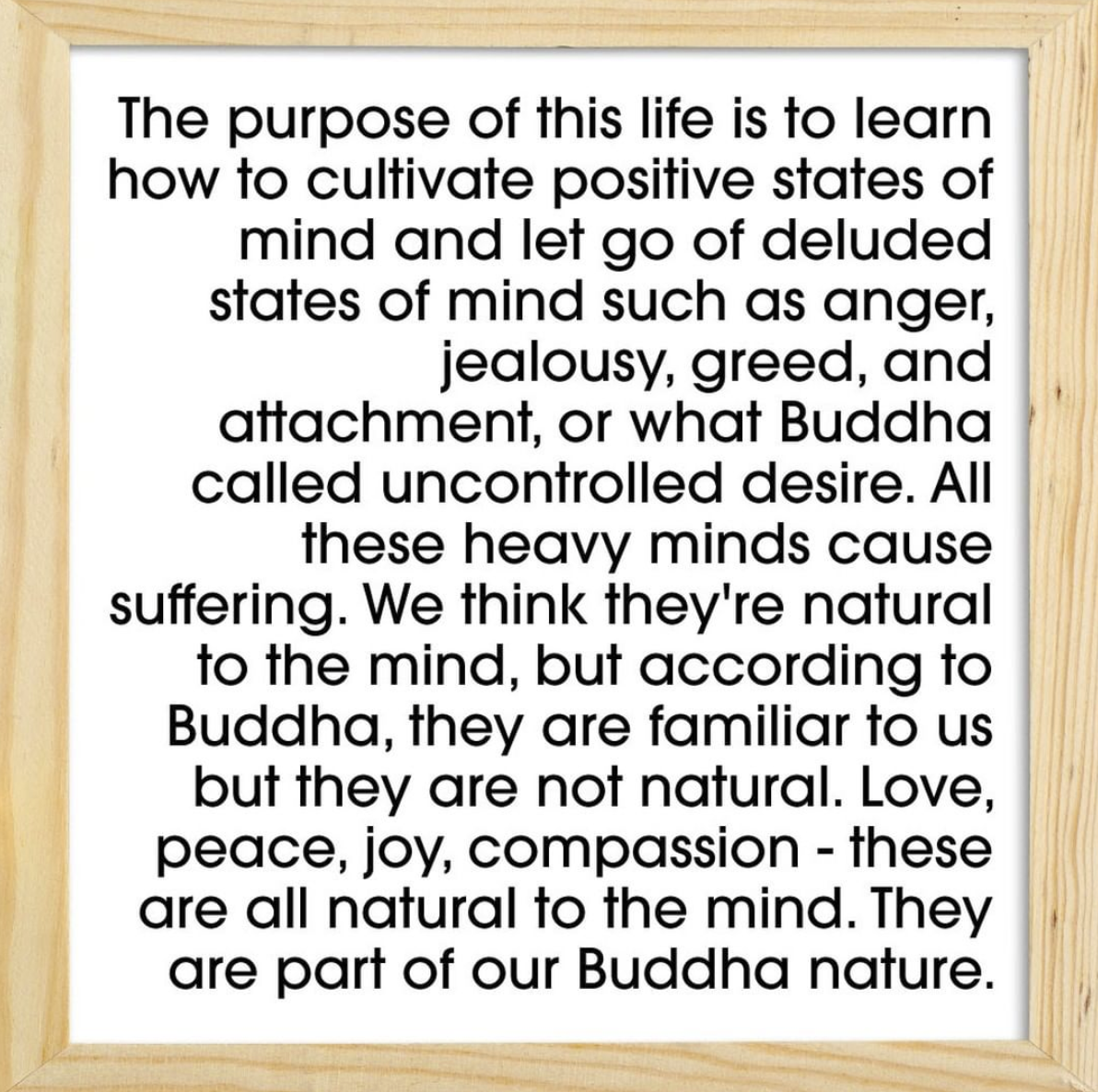
The purpose of this life is to learn how to cultivate positive states of mind and let go of deluded states of mind such as anger, jealousy, greed, and attachment. All these heavy minds cause suffering. We think they're natural to the mind, but according to Buddha, they are familiar to us but they are not natural. Love, peace, joy, compassion - these are all natural to the mind. They are part of our Buddha nature.
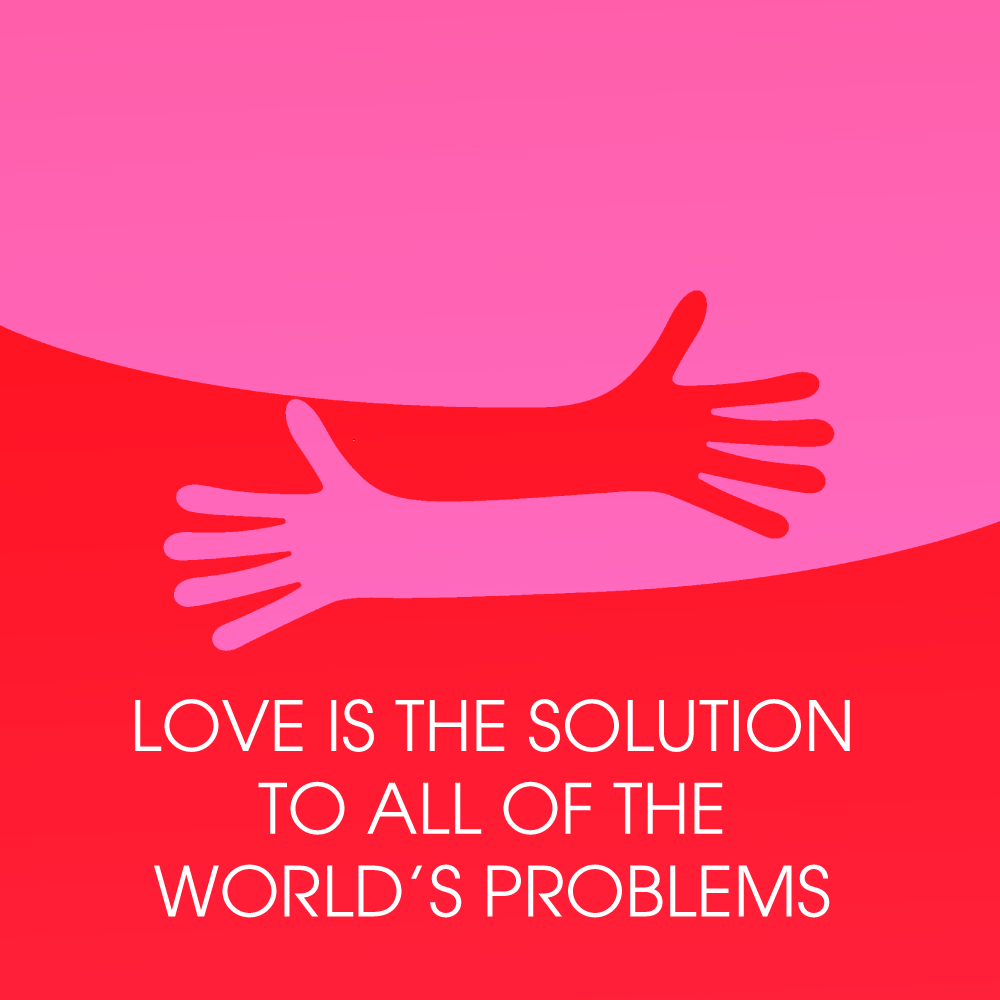
What would happen if we all looked after one another? We could literally solve all of the world's problems. Inequality would vanish. Injustice and exploitation would vanish. We could end climate change and many of the other disastrous consequences of selfishness. If we look after each other, we can accomplish anything.

We're often encouraged to get angry. We're even told that getting angry is a sign we care, that we're passionate. We see it as a source of energy, creativity and action. Buddha gives us a completely different perspective - a wisdom view of anger. According to Buddha, anger is completely destructive and only creates problems. The great Buddhist monk, Shantideva is famous for saying "there is no evil greater than anger". If we were to learn to respond to life's difficulties without anger we would be much more powerful and effective at creating the changes we want to bring about.
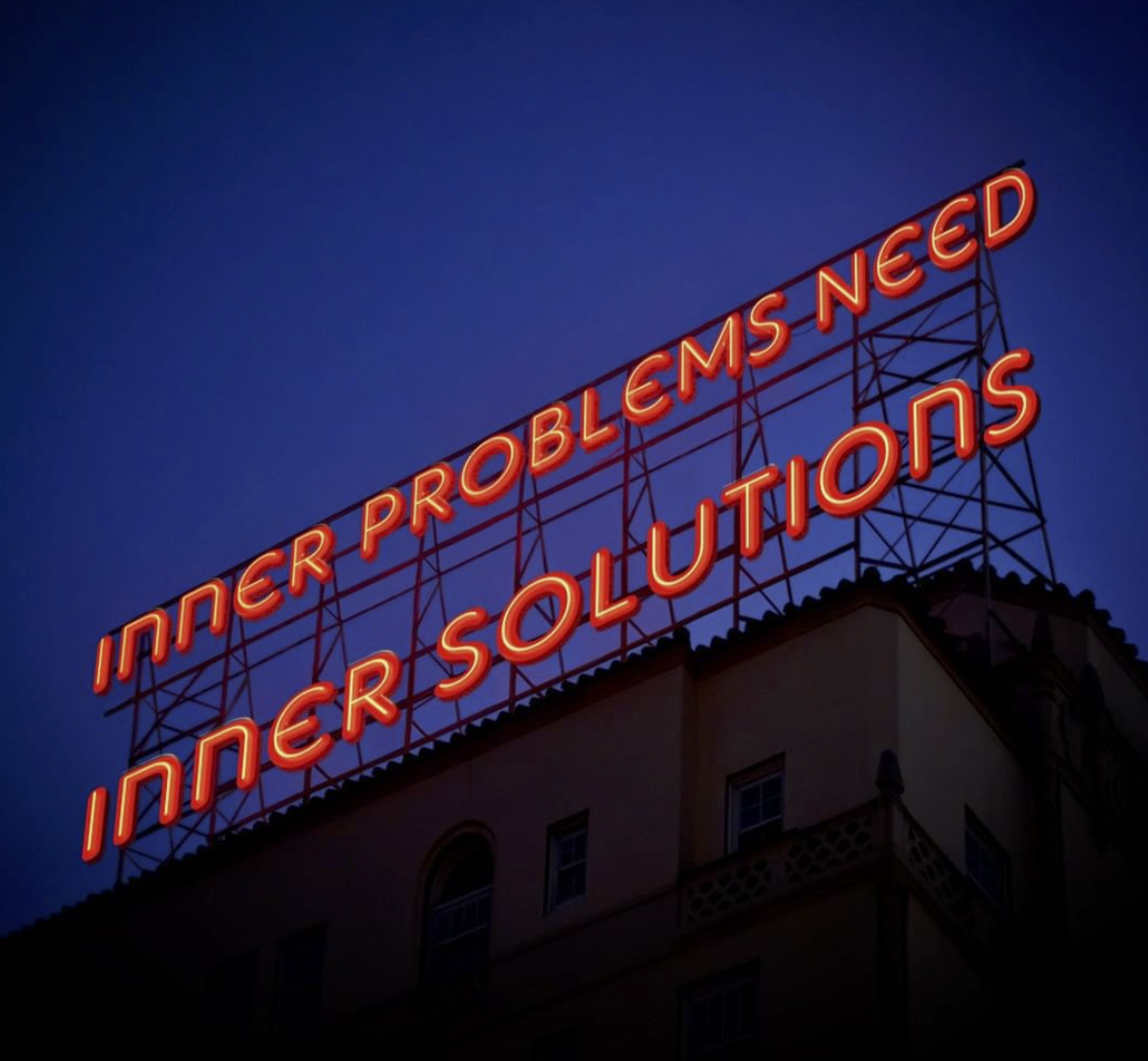
Buddhism helps us to distinguish between outer and inner problems. When someone is angry, for example, we're not training to accept their behavior. We're training to accept the uncomfortable feelings arising in our mind. This is our inner problem, the source of all our suffering.
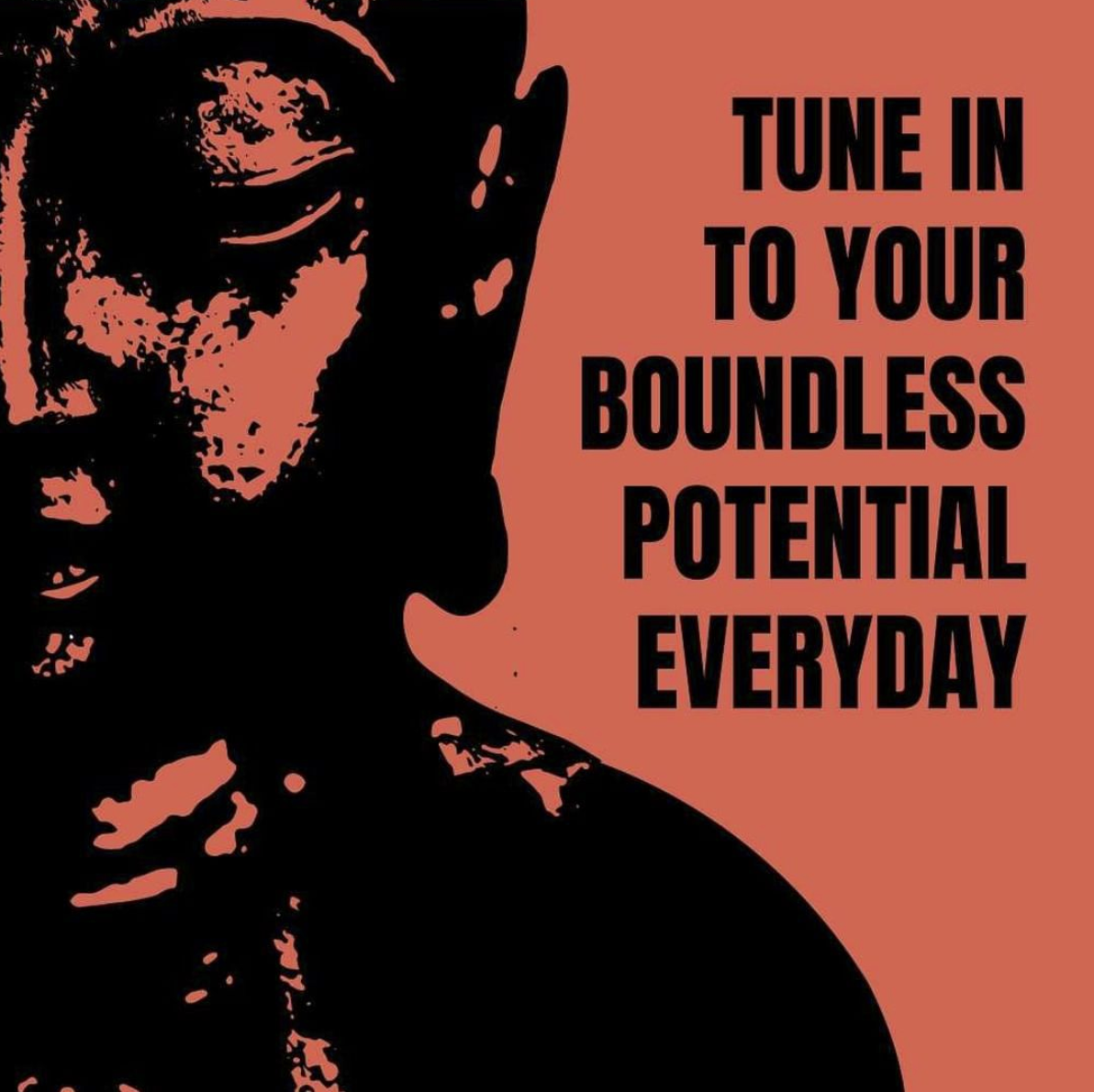
By tuning into the boundless potential that exists within our mind we accelerate our process of transformation. We can tune in simply by remembering "my mind is boundless, and so is my potenial. I want to begin to actualize it now." If we do this regularly, everyday, then gradually over time, our sense of who we are will change. We'll start to see ourself as on a path to the actualization of our highest potential, and we'll view everything that happens in our life -- the good and the bad -- as helping us on that journey.
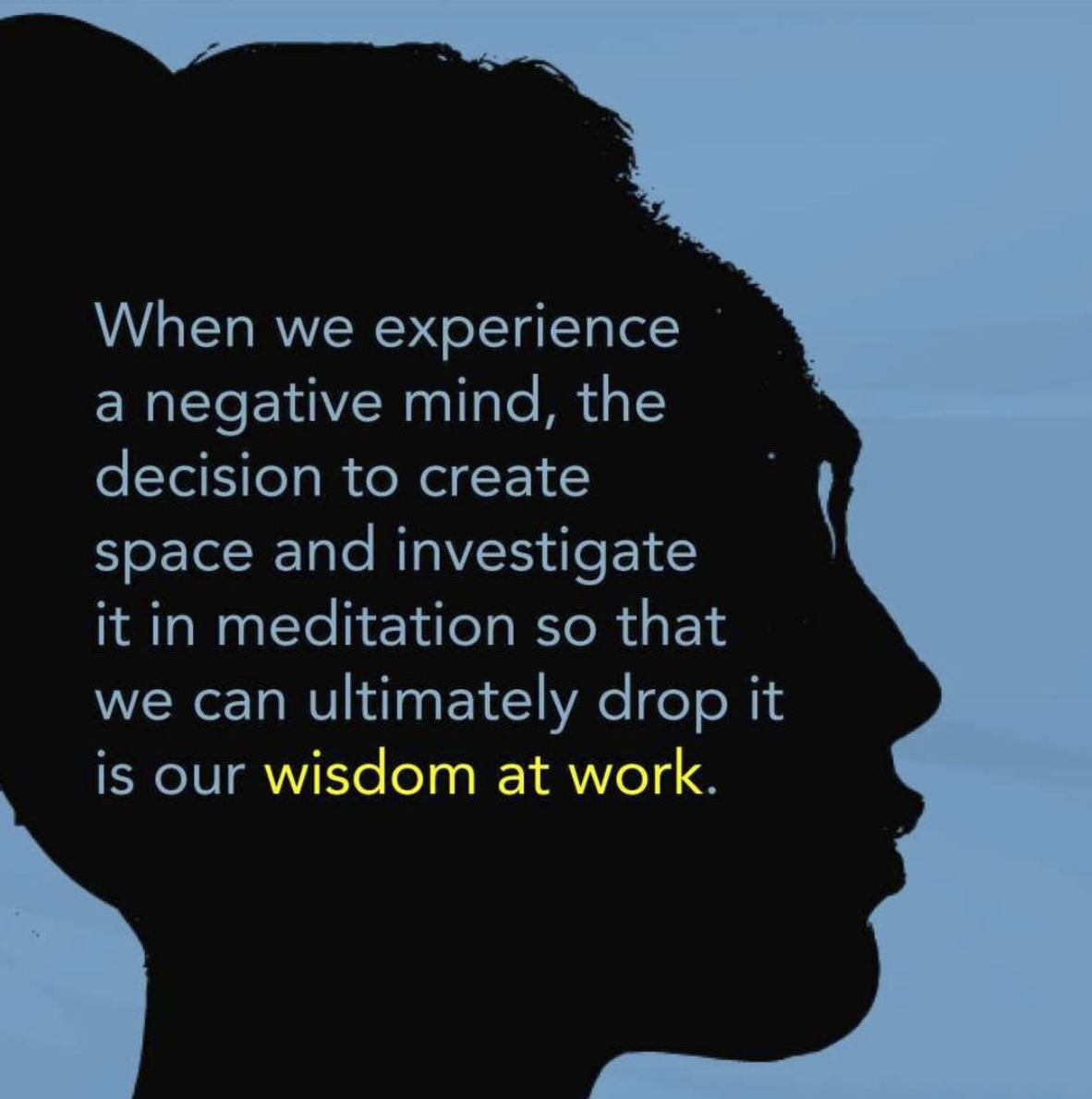
When we experience a negative mind, the decision to create space and investigate it in meditation so that we can ultimately drop it, is our wisdom at work.
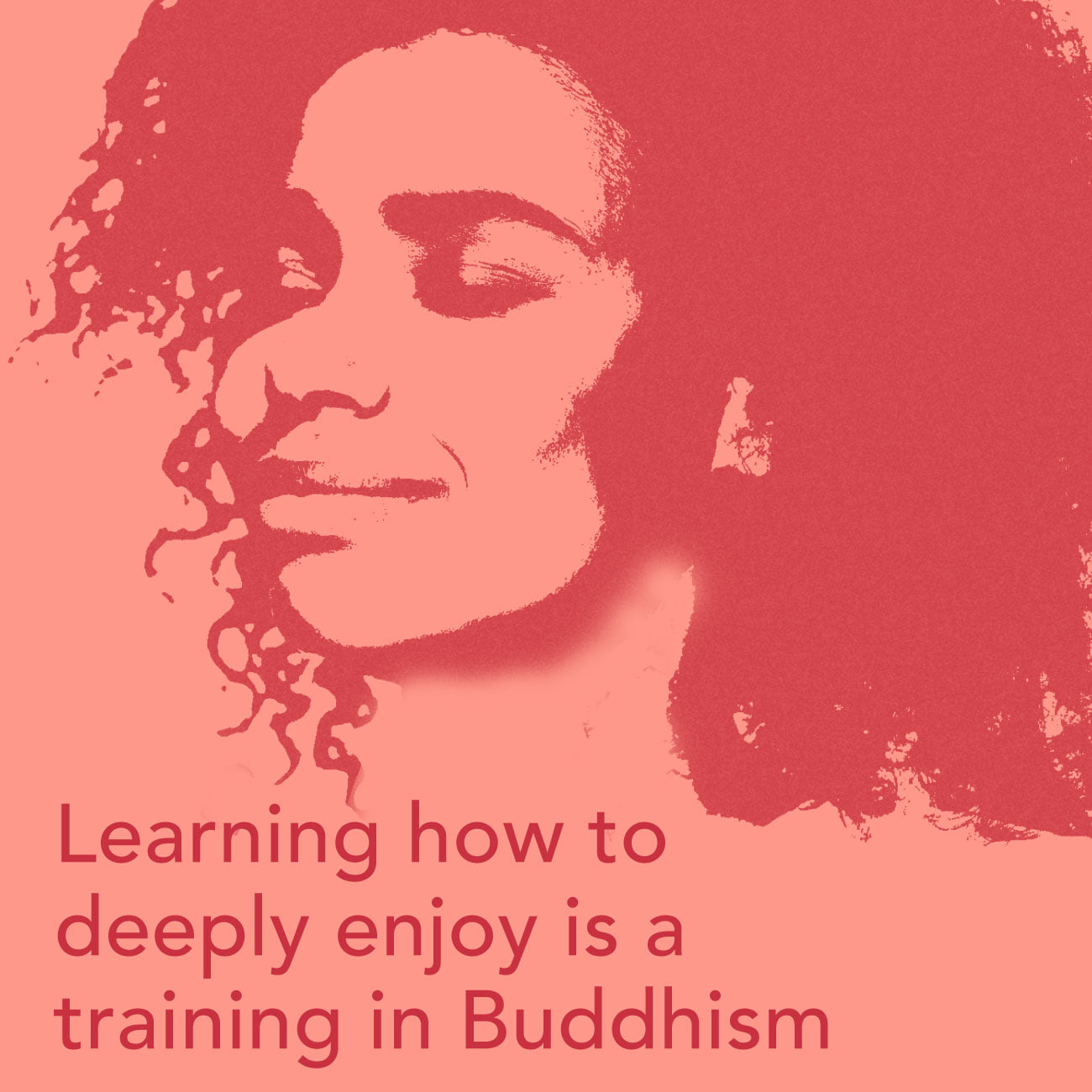
How often do we take the time to deeply enjoy things? Deep enjoyment comes from focus, mindfulness, and deep attention. All of these skills are developed in meditation. Without them it's impossible to actualize our highest potential.
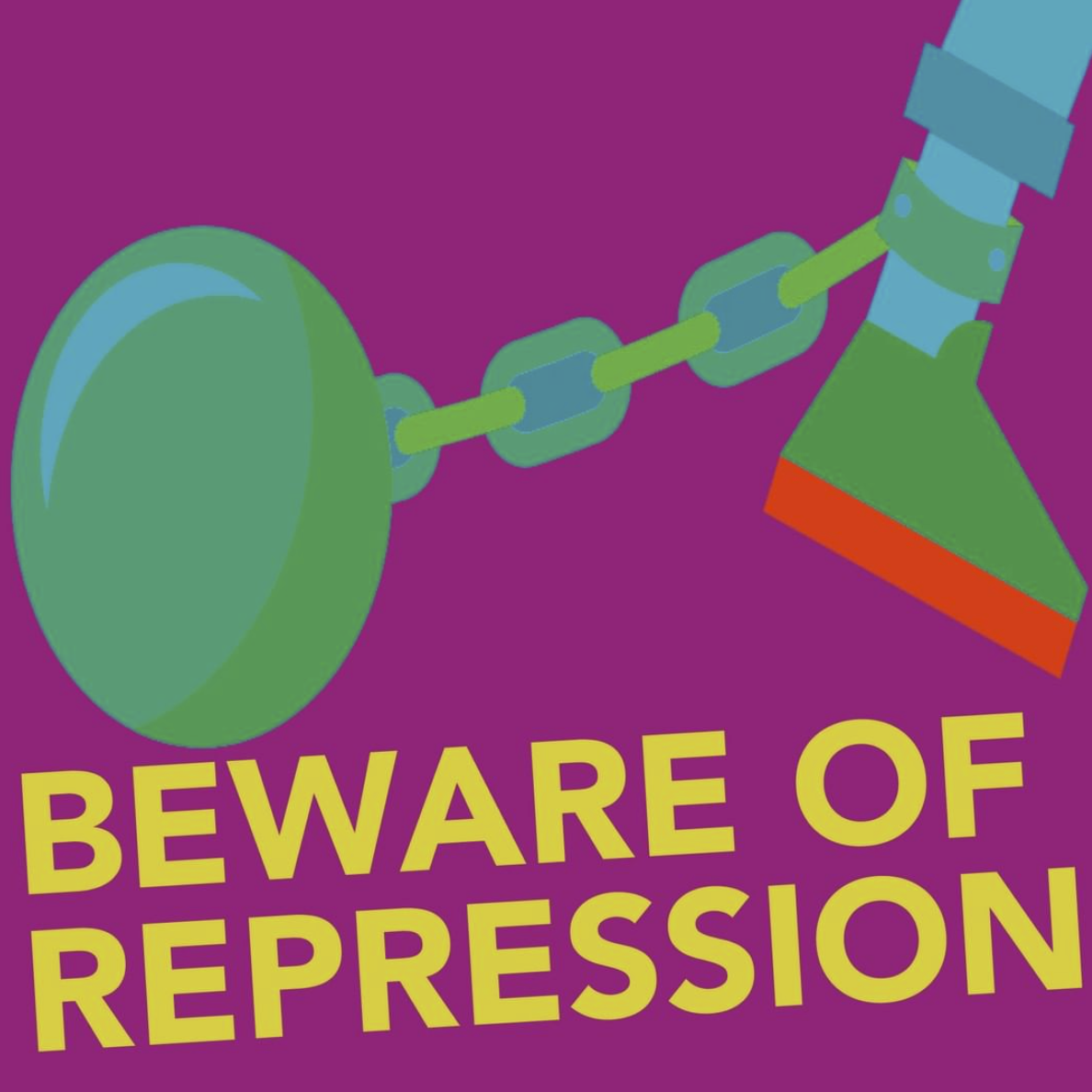
It's important not to simply repress our anger. When we repress anger, we internalize it, which creates tension or pain in the body and mind. A hallmark of repressed anger is an out-of-control explosion after the fact, at that person we are angry with, or maybe at someone completely unrelated to a situation which has made us angry. Repressed anger is anger that isn't acknowledged, and from that point of view it can be even more dangerous.

"For every action we perform, we experience a similar result. If a gardener sows a seed of a medicinal plant, a medicinal plant and not a poisonous one will grow; and if he or she does not sow any seeds, then nothing will grow. In a similar way, if we perform positive actions we will experience happy results and not unhappiness, if we perform negative actions we will experience only unhappy results, and if we perform neutral actions we will experience neutral results."
Geshe Kelsang Gyatso, How to Transform Your Life
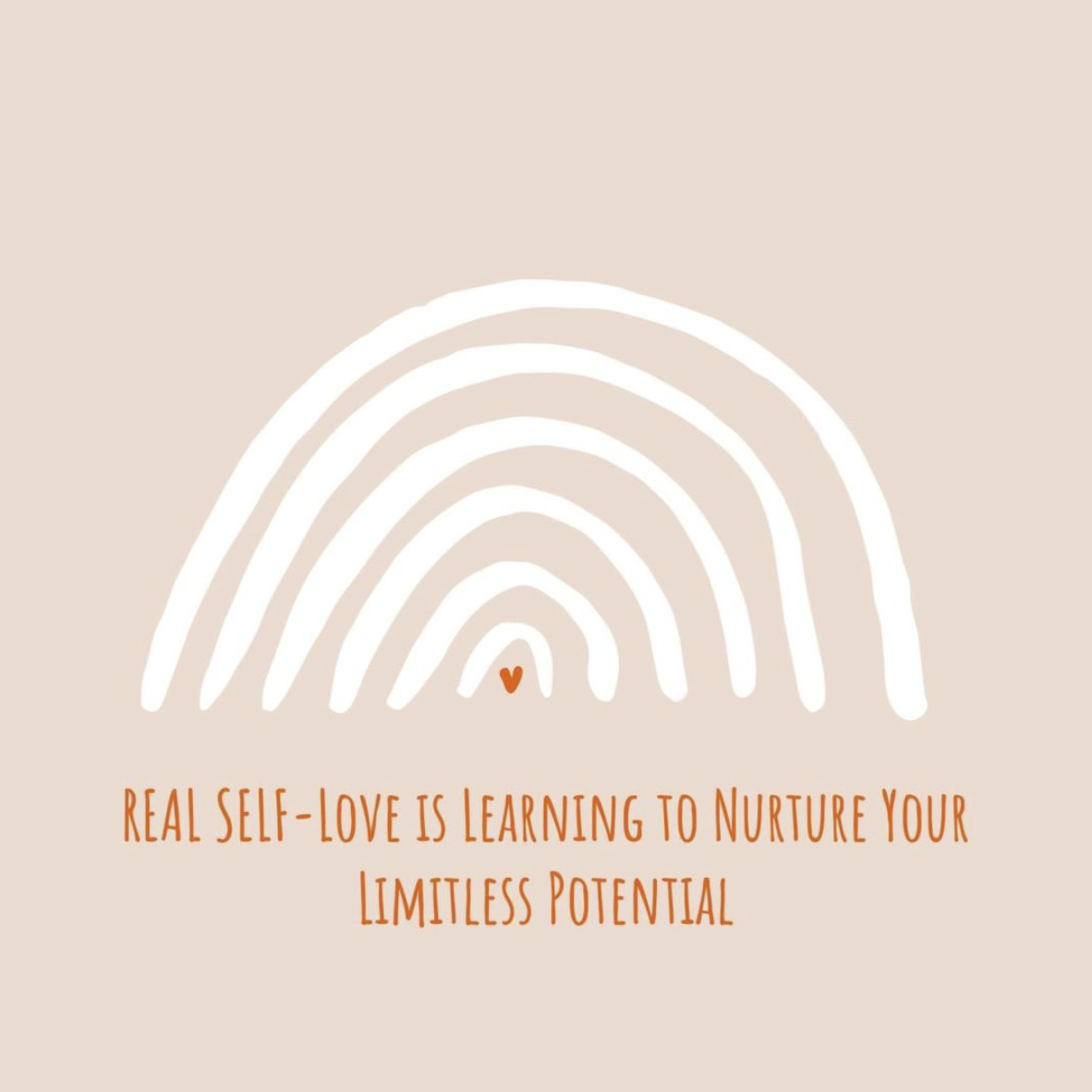
Real self-love isn't about pampering yourself because that's not the way to bring about radical transformation. Real self-love is about recognizing your limitless potential - for love, joy, wisdom, happiness - and nurturing that. The more you develop this kind of self-love, the better your life will become. Guaranteed!
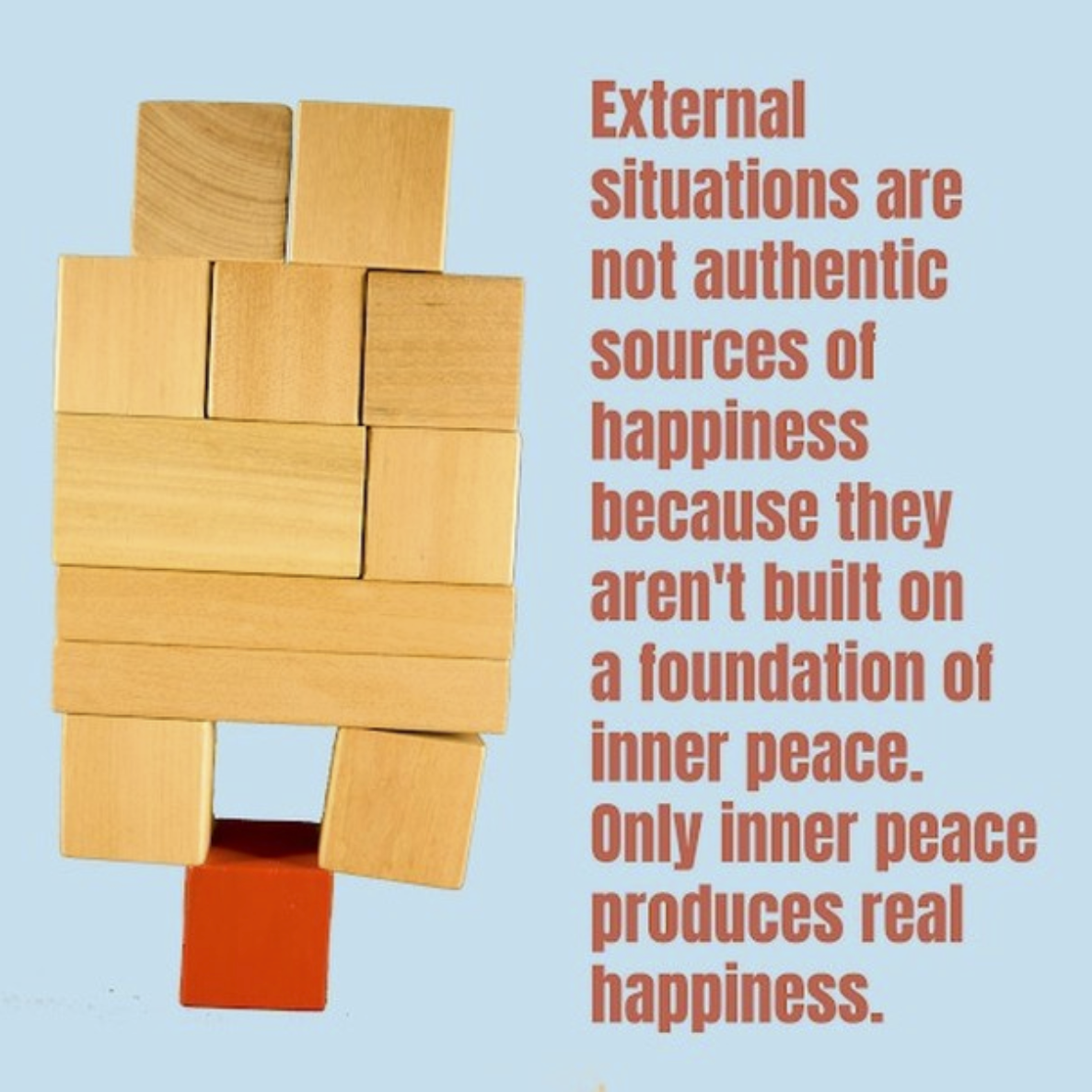
If we're honest, even when things are going well for us in life, for example, we have the right job or the right partner, there's still dissatisfaction in our heart. External situations are not authentic sources of happiness because they aren't built on a foundation of inner peace. The dissatisfaction we experience is a sign we're still carrying delusions in our mind, such as anxiety, anger, resentment, or jealousy.

We've become so accustomed to looking at things, checking things, that we spend almost no time just being -- and getting to know our own mind. Which is a shame, because within our own mind is a treasure to be discovered. And yet we're always checking: "What's happening now? What's up?" So our mind is always agitated.
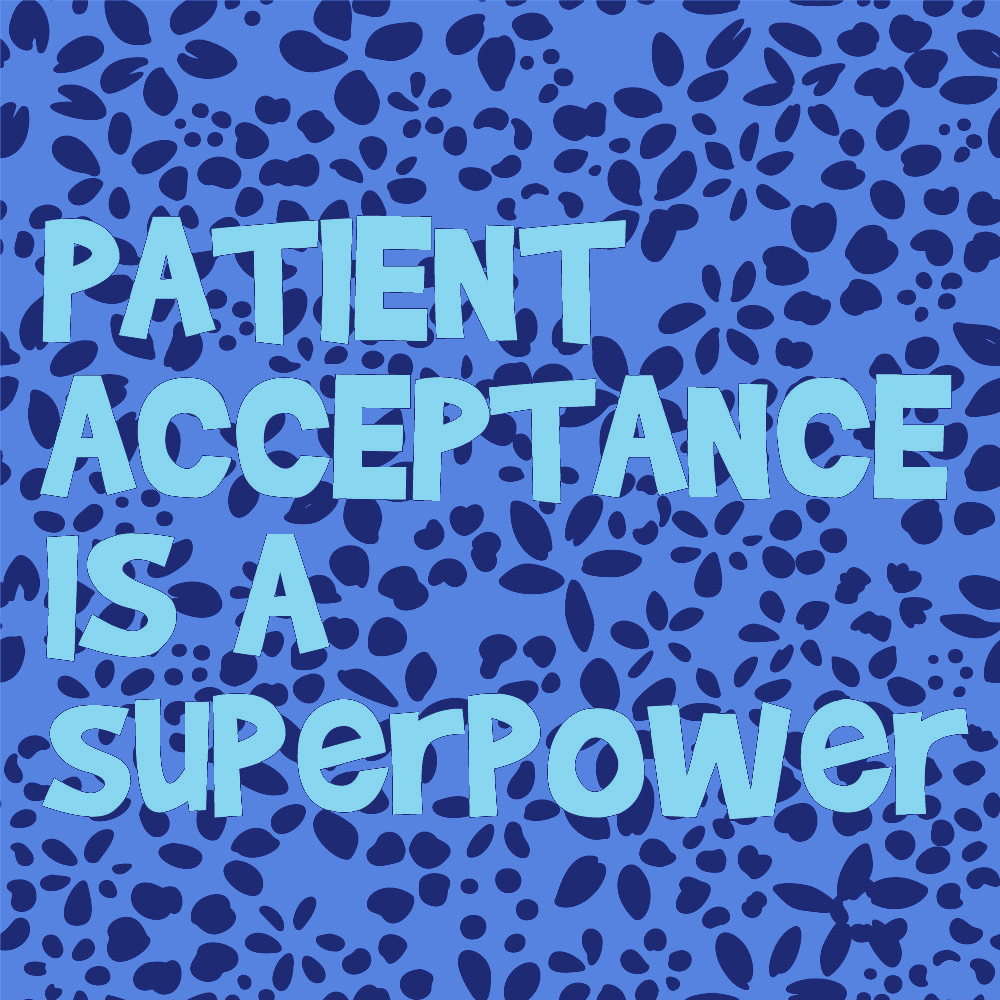
We must not get perfectionist or results-oriented about our meditation practice - we simply need to start where we are now, with whatever level of understanding or experience we have. It is important to be careful of a tendency to grasp at results whereby we are disappointed that we can’t perceive any immediate improvement. The process of creating deep and lasting change takes time.

According to Buddha, the self doesn't exist separately from the mind, which means who we are depends entirely upon who we think we are. This is incredibly liberating news! It means that we don't have to identify with any negative or painful versions of ourself, because they are simply projections of our mind. Instead, we can create a completely liberated, free, happy version of ourself and identify with that. It is because things exist in dependence upon the mind that we can eventually attain the enlightened state of a Buddha.
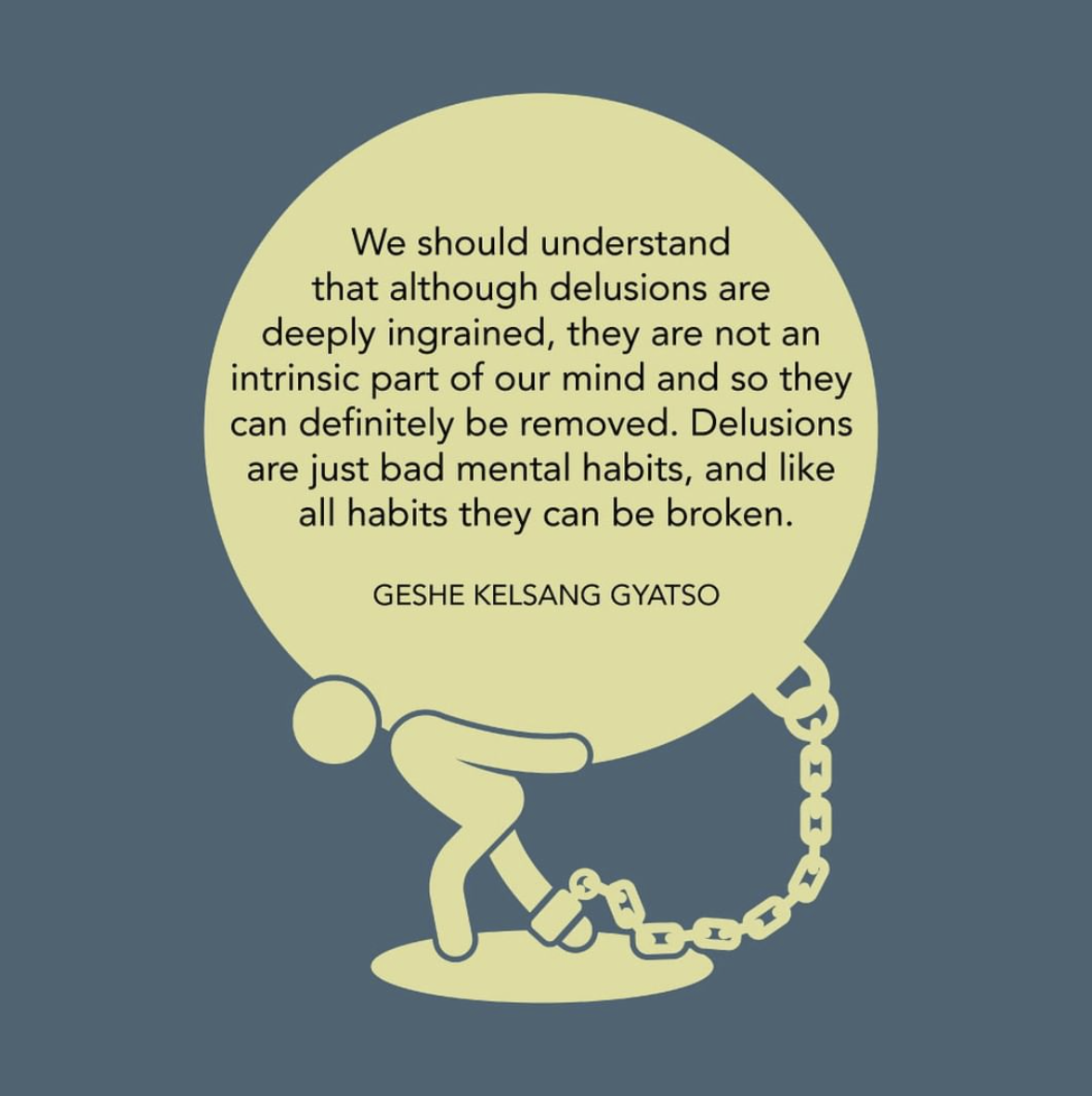
How can we know that all our negative states of mind are just bad mental habits? When we focus on our breath and stop focusing on our. deluded, rambling thoughts, peace naturally arises. In other words, peace is natural to the mind. Delusions are not natural to the mind, they are just very familiar to us, and we can learn to drop them.

Training our mind to respond without anger involves learning to patiently accept challenging circumstances. This patient state of mind reduces our unhappiness. Rather than resisting difficult situations, our patient acceptance welcomes them wholeheartedly, having given up the idea that they should be anything other than what they are. This state of mind sees difficulties, not as obstacles, but as opportunities to grow.
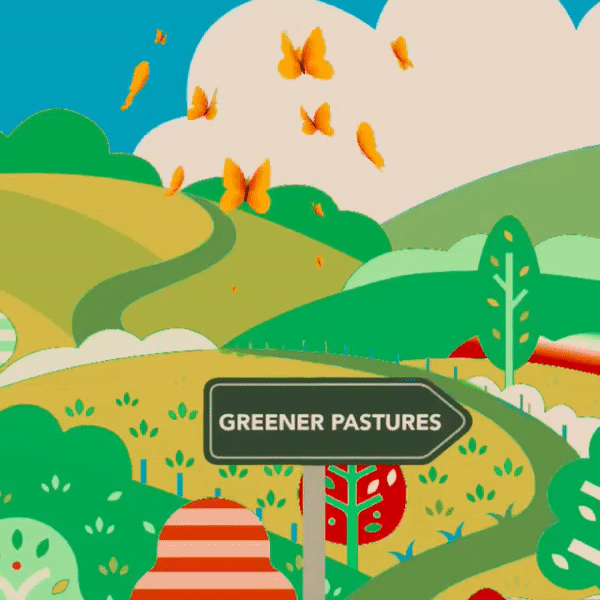
Covid and its endless new variants, climate change, increased violence, injustice, poverty, suicide. Wherever you look these days the suffering in our world seems pervasive, overwhelming and hopeless . . but not for Buddhists. Why? Because we don’t look for happiness in the world. Rather we discover it in our own hearts through meditation and then strive to share that happiness with the whole world.
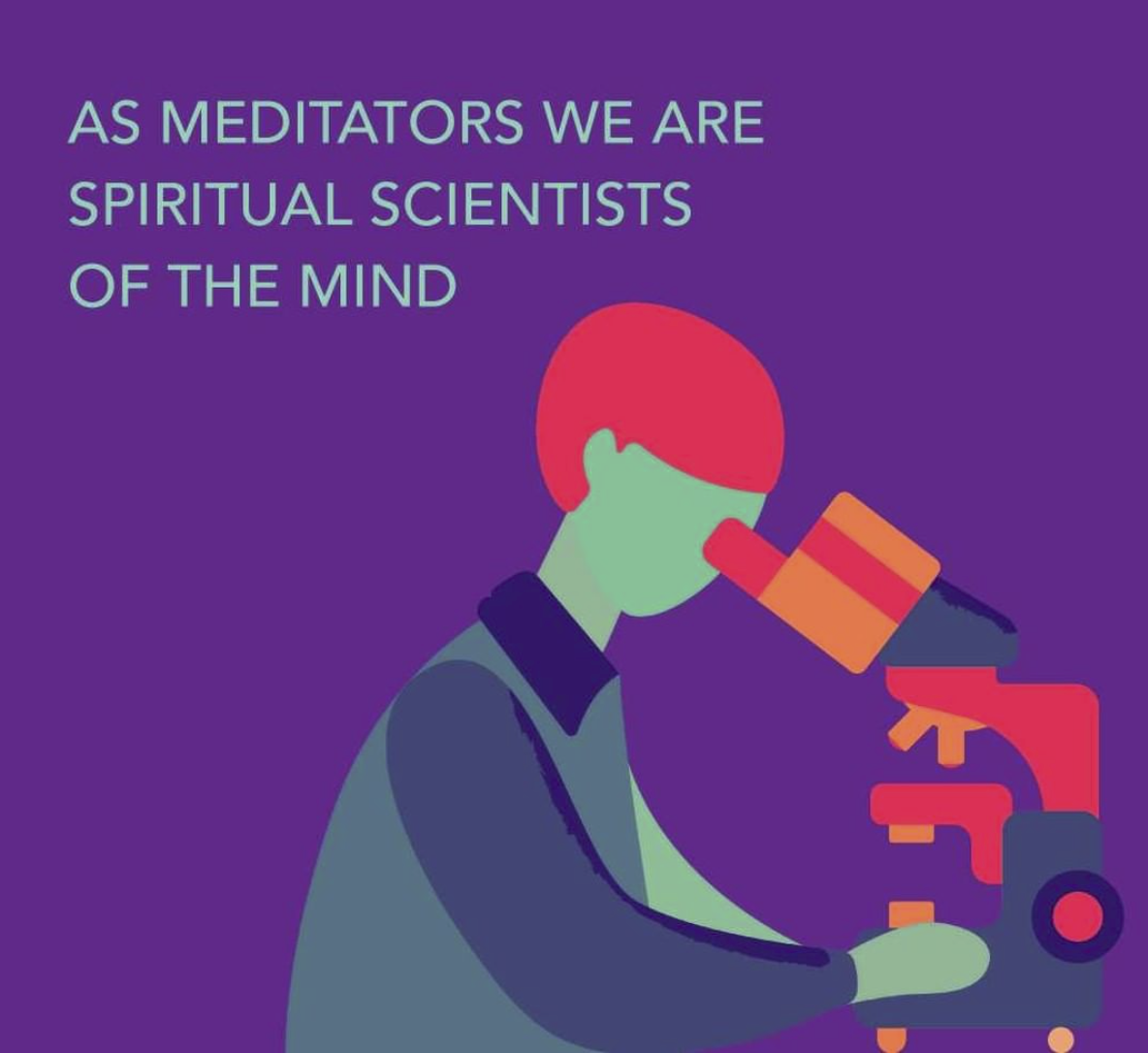
As meditators, we need to become spiritual mind scientists who engage in daily experimentation with our mind. We can be doing this all the time by using everyday circumstances to learn about where we truly think happiness comes from.

When we first start meditating, sometimes we think we're actually becoming more distracted. That's not the case, though: we're simply becoming aware of just how distracted we are. It's only when we begin to train the mind that we recognize how out-of-control our mind really is! It's important that we don't get discouraged and give up, because the more we meditate, the better it gets. And then it gets even better....and, eventually, it becomes truly wonderful.
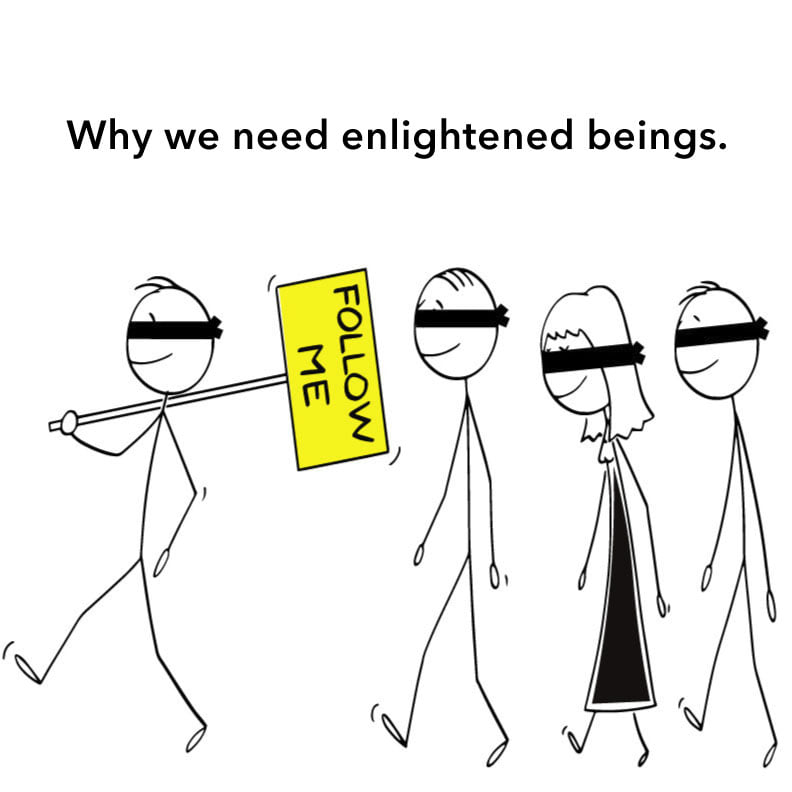
One struggling person can only help other struggling people so much. The same is true of someone who hasn't trained their mind. But when we liberate ourselves from deluded, unbalanced states of mind, we will have the power to liberate others also.

Meditation is like a bridge that carries us from painful states of mind such as isolation, fear, loneliness and anxiety, to minds characterized by love, connection, compassion, wisdom and joy.
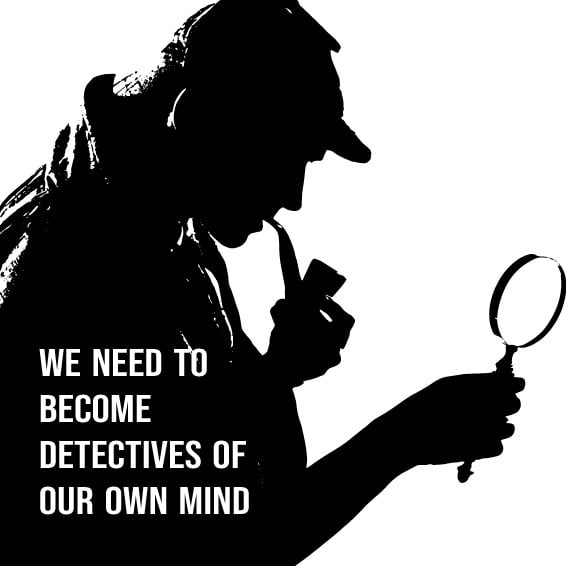
We need to become detectives of our own minds, so that we learn to recognize what states of mind bring us happiness and what cause us suffering. By doing this, we'll naturally develop the wish to let go of our deluded minds such as anger and jealousy that only cause us pain.

Love is a pure mind that gives rise to pure internal experiences and a pure experience of the world. There is no objective beauty to be found "out there," there is only our subjective experience of it. And that depends upon our state of mind. Mind creates our world, and a loving mind creates a beautiful world.

When we change our mind through meditation, we naturally embody a spiritual perspective that is fundamentally optimistic. We recognize through our own experience that the mind is the cause and also the solution to all the world's problems, and that no matter how degenerate things may appear to be, there is always a future and we have the tools to make it extraordinary.
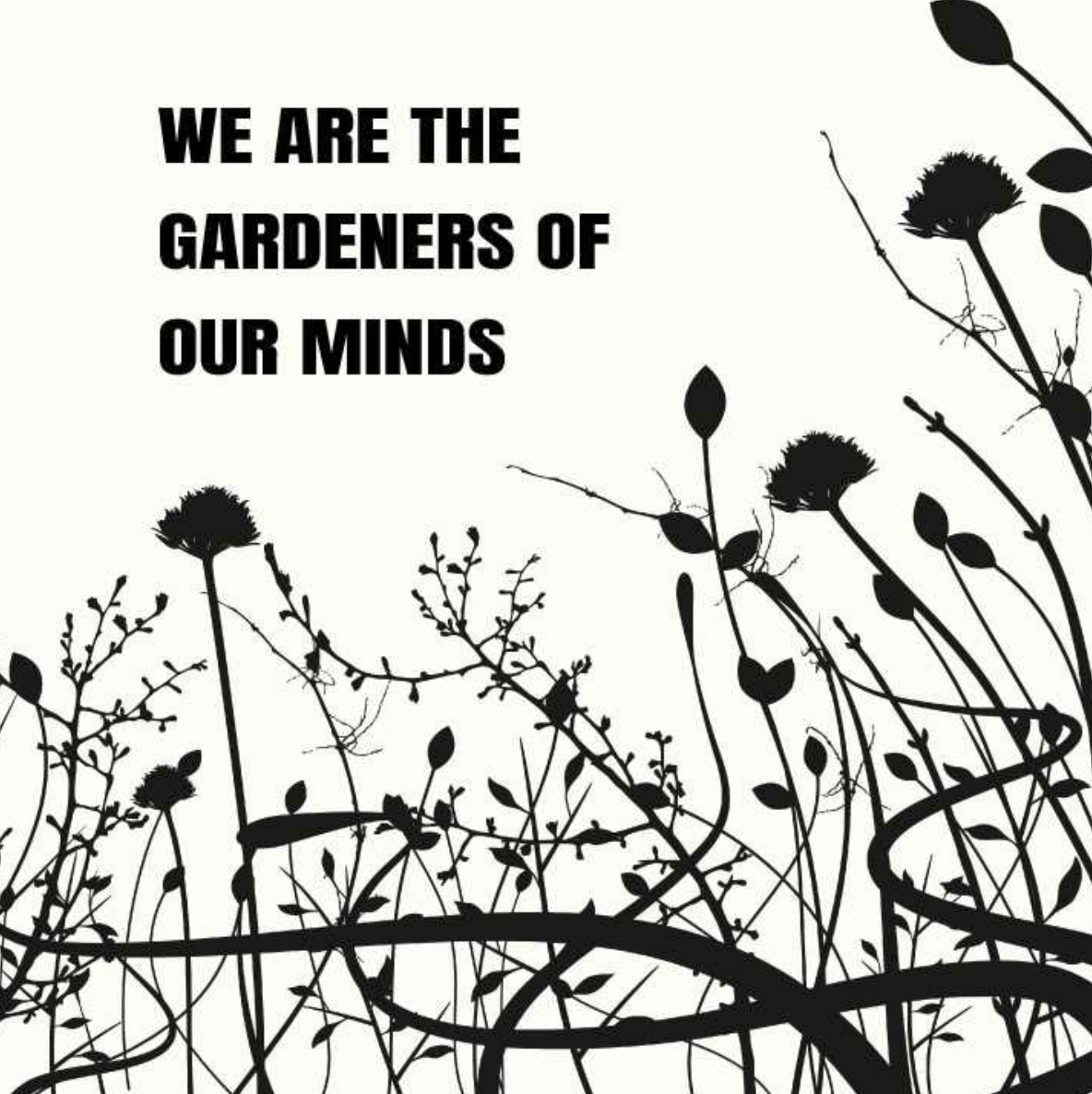
We can learn to identify all the different thoughts arising in our mind, as well as how we can get rid of the ones we don't like and cultivate the ones we do like. The thoughts we want to cultivate are the ones that make us the happiest.
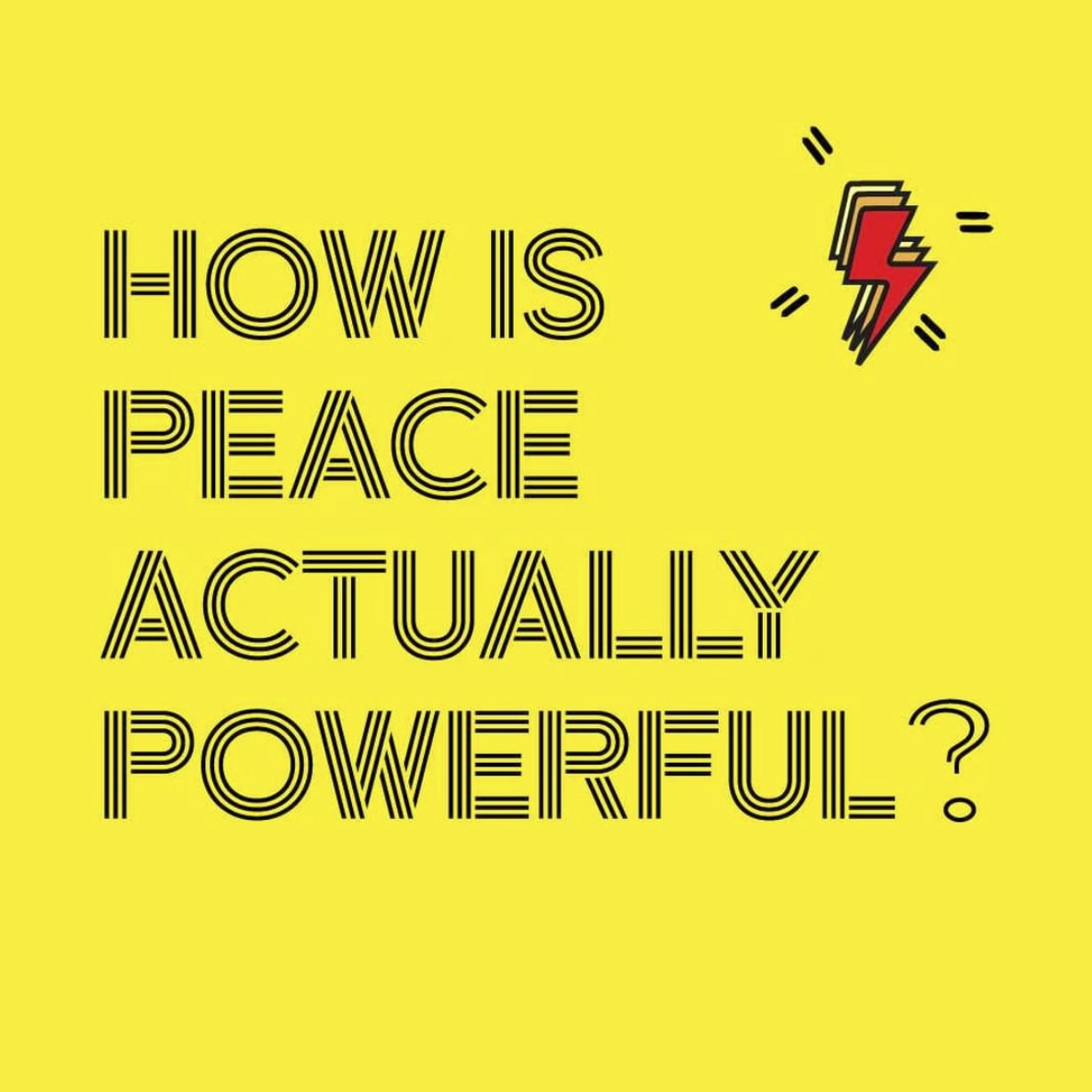
The experience of a peaceful mind is what gives us the energy and confidence to stop following our delusions, such as uncontrolled desire, depression and anger. By tapping into our peaceful mind, our Buddha nature, every day, we're building our experience of pure happiness! Even if our experience is initially very small, we need to recognize it and focus on it. This is how we create the conditions for it to expand over time until eventually this foundation is strong enough to carry us to enlightenment. This is the incredible, transformative power of a peaceful mind.

In The New Eight Steps to Happiness, Venerable Geshe Kelsang writes “Pure love is unmixed with attachment and stems entirely from a concern for others’ happiness . . . we should learn to distinguish attachment from love, and gradually try to remove all traces of attachment from our relationships and to improve our love until it becomes pure.”
